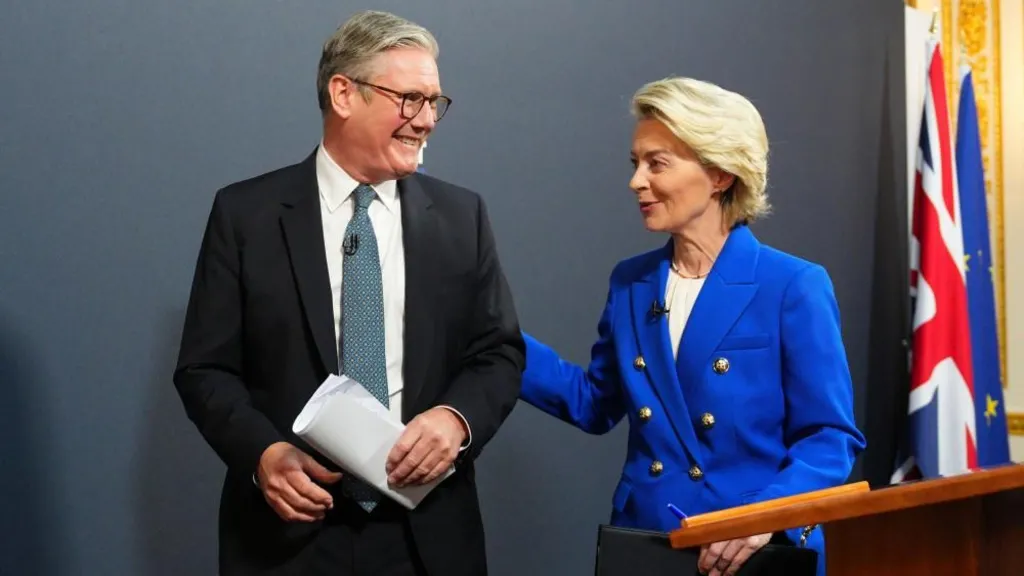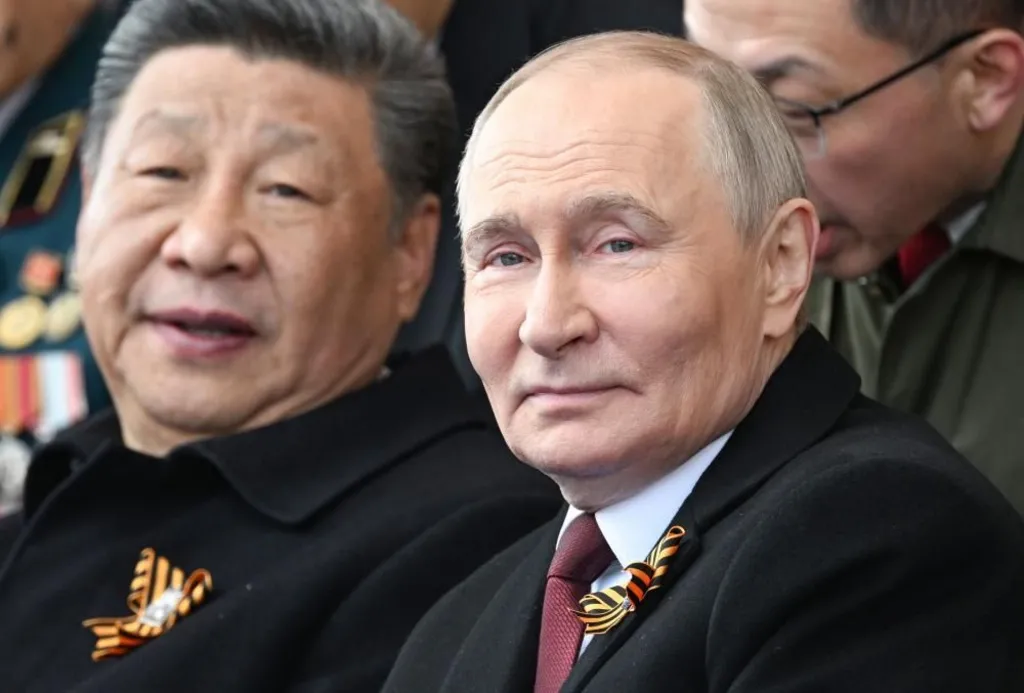
 PA Media
PA Media"We're turning a page," EU chief Ursula von der Leyen said on Monday after the bloc's first summit with the UK since Brexit. "We're opening a new chapter."
It is not the first page that has been turned in the post-Brexit period, but it is potentially the most significant.
The two sides have now struck a deal that covers fishing, trade, defence, energy and strengthening ties in a number of policy areas that are still up for negotiation.
For Brussels, this negotiation was a chance to bring Britain – a major defence power – closer in a time of geopolitical turbulence.
And to address what some member states see as irritating hangovers from Brexit.
For years, there was a "don't touch it" mentality when it came to taking a broad look at the Brexit settlement, according to one EU diplomat.
It all involved "too much politics" with fears it could all "go wrong."
Remember, up until the 2023 Windsor Framework agreement, London and Brussels were bogged down in a protracted dispute over trade arrangements for Northern Ireland.
Then, in 2024, a new government won power in the UK - the more EU-friendly Labour Party.
Officials in Brussels had long voiced exasperation – even distrust – with prior Conservative administrations, a party with a vocal Brexit-backing contingent.
Some Brexit supporters are now castigating a deal that they say amounts to a sell-out of sovereignty to EU bureaucrats.
Diplomats in Brussels, however, insist that this is a "normalisation" of relations between neighbours who still look at the world in a broadly similar way.
That being said, there was evident satisfaction in EU circles about locking in fishing quotas for 12 years.
When I checked with one diplomat about that detail, they initially replied with a smiley face emoji.
Another said: "The deal is balanced—arguably with favourable terms for the EU—and simply shows that splendid isolation is not an option in today's climate."
Of course, the EU will want to highlight its "wins" in a negotiation with a former member state who badly shook the bloc by leaving.
Nevertheless, coastal countries - notably France – will be happy at not having to endure annual fish quota talks, for now.
It was, in the end I'm told, quid pro quo. The EU got its fishing deal. In return, it'll be easier for UK businesses to export agri-food products – although that element hasn't been finalised.
Also yet to be ironed out are the plans for youth mobility – which would allow young people to study or work more easily between Britain and the EU.
That was a particularly important goal for countries like Germany, anxious to win better access to an English-speaking country with prestigious universities.
Another key point for Berlin was the new defence and security partnership.
Russia's full-scale invasion of Ukraine and Donald Trump's unpredictable White House have ripped up the rules on European security.
Time has been something of a healer – but the events of recent years have also created a sense of urgency.
Better ties with Britain, which remains a major defence player, is a no-brainer – now more than ever – for mainland Europe as it tries to scale up investment and capabilities.
Nations like Germany – which only recently hit the 2% Nato spending target – are acutely aware that they have been left exposed by the dramatic global developments of recent years.
But, of course, most of this deal is an agreement in principle; a statement of intent on issues also ranging across cyber security, energy and migration.
"I think it's a good step," another EU diplomat told me. "It's good to test the waters for practical cooperation and what can be done. Let's take it from there."
There is still a watchful wariness in Brussels about Britain's fraught and divisive debate about relations with the EU.
All the specifics, which have yet to be negotiated, could stir up further political storms whether that's on political compromises or cost.
This "reset" may not change the big fundamentals of Brexit - the UK remains out of the single market and customs union- but it does commit London and Brussels to doing a lot more talking as they try to fill the many gaps that lie within this long list of ambitions.
That means there will be a greater volume of diplomatic traffic between the UK and the EU going forward.
Doing more business with Brussels inevitably means doing more talking. In that regard, today is just the beginning.

15 PerFlyer